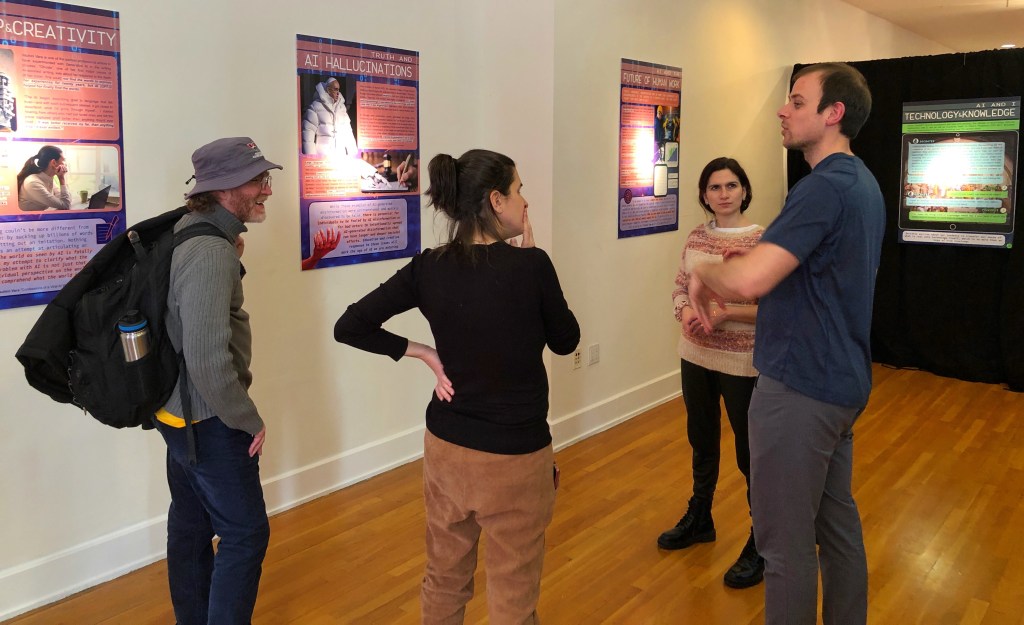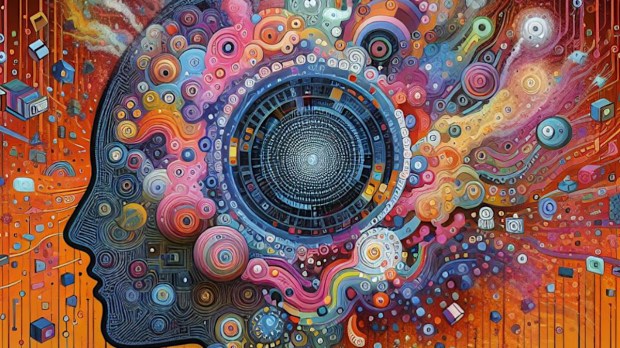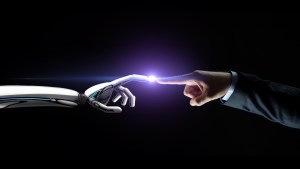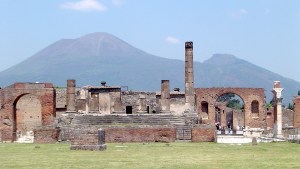Artificial intelligence is on everyone’s lips. “Have you used it yet?” “How does it work?” “Is it ethical to use it at my job?” Or even, “What if AI replaces us?”
While fears of an artificial intelligence takeover may seem overblown, it is clear that AI is now a seemingly irreversible part of the fabric of how we communicate, invent, and build in today’s society. That what made an exhibit entitled “AI and I” at this year’s New York Encounter — a weekend cultural festival that gathers Catholics and other seekers for opportunities of “education, dialogue, and friendship” — so intriguing.
There was also a livestreamed panel that laid a foundation for the discussion by providing a general explanation of what artificial intelligence does. Panelist Jon Stokes, co-founder and chief product officer at Symbolic AI, explained that in some ways, AI is like a search engine, but instead of simply finding the results that a user is looking for, it stitches elements together.
He also pointed out that not even the creators of AI truly understand how the technology works.
The rapidly growing impact of AI
The impact of AI is already making itself felt. From generating images to entire articles and even short films, AI suddenly seems to be at work everywhere. But the panelists emphasize that AI is primarily intended to be used as a productivity tool — to help humans become faster and more efficient at tasks. It is in the “assistant” sector that AI can be most helpful, not replacing human creativity, but augmenting it.
Stokes and panelist Jennifer Strong, an audio journalist behind the podcast Shift, explained that AI can potentially enable people to move further up the creativity chain. AI can, for example, complete basic services such as generating lines of computer code and writing outlines, but then people are still needed to direct, edit, and supervise the final product.

AI points us back to the human
In fact, the limits of artificial intelligence may actually help us identify what is unique and irreplaceable in human nature. Humanity, Stokes says, is ultimately “about relationship.” Artificial intelligence may be able to generate objects of all kinds, but those objects will never possess the significance of something specifically created by one person for another person.
Nor can AI understand or replicate (at least not yet) the complex inner lives of people. After the talk, Aleteia visited the accompanying exhibit and spoke with moderator David Bolchini, an executive associate dean at Indiana University’s Luddy School of Informatics. He gave the example of a person who is experiencing grief. If a feeling of grief or other intense personal emotion cannot be put into precise words, there is no way it can ever be recreated by an AI.
In other words, AI can only generate objects, conversations, and texts based on things that have first been experienced and expressed by human beings. And of course, AI itself was invented by people. One way to view AI is that it puts human creativity on full display.
Hallucinations and fake news
Yet, it makes sense to have concerns about AI. Strong brings up the question of the ethics of artificial intelligence. AI often “hallucinates” or generates fake news based on what it stitches together, then confidently presents those falsities as facts. Bolchini commented later that once AI digests something about you — true or untrue— it remains on the web for good. There isn’t currently a common understanding of how to remove inaccurate information. If, as Strong asserts, “truth matters,” how will we discern what is true or untrue?
Strong also said that fears that AI will put people out of work were well-founded. “This is about cutting jobs right now,” she said. Companies are looking to save money, but there is no indication that money is being reinvested into new projects. “So if people are feeling fretful, it makes sense,” she said.
In addition, there is the risk that some individuals will choose to isolate themselves further from society and immerse themselves fully in simulations created by AI. Stokes said that some people will simply chase their appetites unchecked with no reference to reality and no real relationships.
For all these reasons, making AI an end itself would be a mistake.
Reasons for optimism
At the exhibit, when asked whether he was ultimately more worried or optimistic about the future of AI, Bolchini told Aleteia:
It changes by the day. Today I’m more optimistic than yesterday. Because I saw when I explained how AI generally works to the guests…I saw people’s eyes lighting up and responding, understanding that under the hood these are engines that are not magic, but probabilistic tools that understand the structure of language that are able to complete our sentences… The more I see people embracing that as a fact, the more I see their worries going down and their optimism growing.
Whether worried or optimistic about the future, the panel and accompanying exhibit are hopeful signs that point to the unique nature of humanity. As long as we are thinking, questioning, and discussing these new technologies, it is evident that human creativity remains, in the words of Stokes “center stage.”
You may view the displays from the exhibit here and watch a video of the full panel below.
Aleteia Deputy Executive Editor John Touhey contributed to this story.



